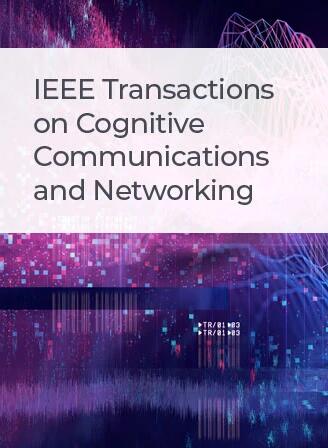Deep Learning Aided Physical-Layer Security: The Security Versus Reliability Trade-Off
IF 7.4
1区 计算机科学
Q1 TELECOMMUNICATIONS
IEEE Transactions on Cognitive Communications and Networking
Pub Date : 2021-12-27
DOI:10.1109/TCCN.2021.3138392
引用次数: 2
Abstract
This paper considers a communication system whose source can learn from channel-related data, thereby making a suitable choice of system parameters for security improvement. The security of the communication system is optimized using deep neural networks (DNNs). More explicitly, the associated security vs reliability trade-off problem is characterized in terms of the symbol error probabilities and the discrete-input continuous-output memoryless channel (DCMC) capacities. A pair of loss functions were defined by relying on the Lagrangian and on the monotonic-function based techniques. These were then used for managing the learning/training process of the DNNs for finding near-optimal solutions to the associated non-convex problem. The Lagrangian technique was shown to approach the performance of the exhaustive search. We concluded by characterizing the security vs reliability trade-off in terms of the intercept probability vs the outage probability.深度学习辅助物理层安全:安全性与可靠性的权衡
本文考虑了一个通信系统,其源可以从信道相关数据中学习,从而对系统参数进行适当的选择以提高安全性。利用深度神经网络对通信系统的安全性进行了优化。更明确地说,相关的安全性与可靠性权衡问题是根据符号错误概率和离散输入连续输出无记忆信道(DCMC)容量来表征的。通过拉格朗日量和基于单调函数的技术定义了一对损失函数。然后,这些用于管理DNN的学习/训练过程,以找到相关非凸问题的近似最优解。拉格朗日技术被证明接近穷举搜索的性能。最后,我们根据拦截概率与中断概率来描述安全性与可靠性的权衡。
本文章由计算机程序翻译,如有差异,请以英文原文为准。
求助全文
约1分钟内获得全文
求助全文
来源期刊

IEEE Transactions on Cognitive Communications and Networking
Computer Science-Artificial Intelligence
CiteScore
15.50
自引率
7.00%
发文量
108
期刊介绍:
The IEEE Transactions on Cognitive Communications and Networking (TCCN) aims to publish high-quality manuscripts that push the boundaries of cognitive communications and networking research. Cognitive, in this context, refers to the application of perception, learning, reasoning, memory, and adaptive approaches in communication system design. The transactions welcome submissions that explore various aspects of cognitive communications and networks, focusing on innovative and holistic approaches to complex system design. Key topics covered include architecture, protocols, cross-layer design, and cognition cycle design for cognitive networks. Additionally, research on machine learning, artificial intelligence, end-to-end and distributed intelligence, software-defined networking, cognitive radios, spectrum sharing, and security and privacy issues in cognitive networks are of interest. The publication also encourages papers addressing novel services and applications enabled by these cognitive concepts.
 求助内容:
求助内容: 应助结果提醒方式:
应助结果提醒方式:


